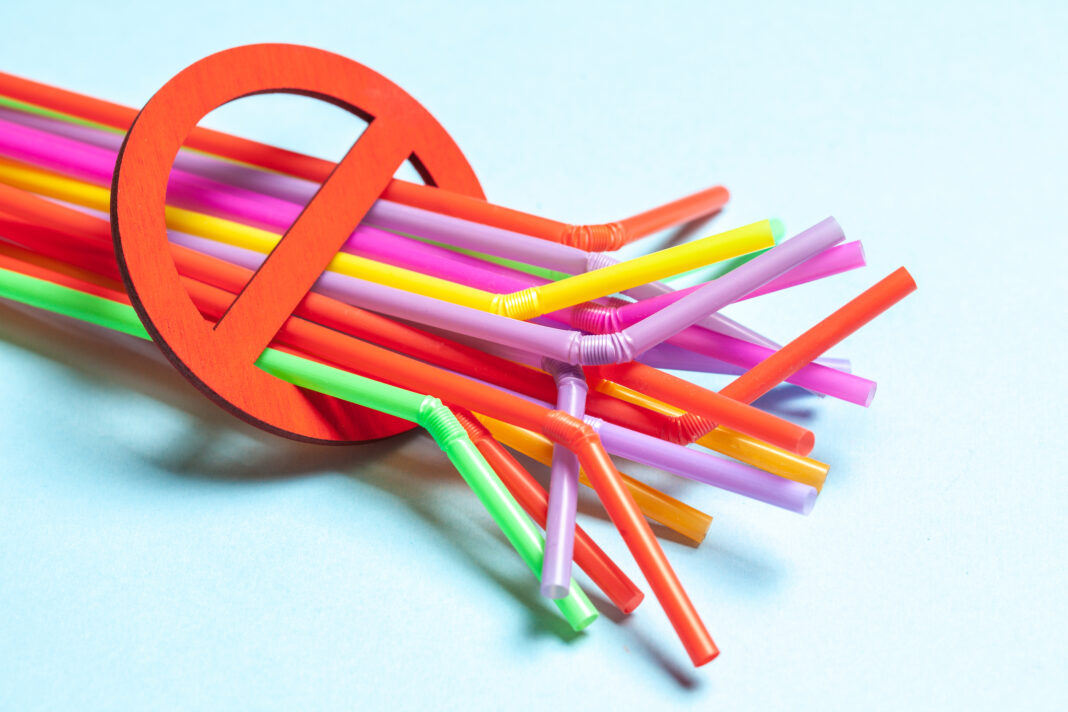New Jersey Secretary of State Tahesha Way and New Jersey Department of Environmental Protection (DEP) Acting Commissioner Shawn M. LaTourette joined forces to encourage Garden State business owners to prepare for the launch of New Jersey’s ban on single-use carryout bags and polystyrene foam food service products in stores and food service businesses.
On November 4, 2020, Governor Phil Murphy signed into law P.L. 2020, c117, which prohibits the use of single-use plastic carryout bags in all stores and food service businesses statewide. The law also prohibits single-use paper carryout bags in grocery stores that occupy at least 2,500 square feet. The law, which takes effect May 4, 2022, is designed to reduce pollution and protect New Jersey’s environment and economy for generations to come.
“With the enactment of the single-use plastic ban, New Jersey, is again leading in protecting our environment, communities, and economy,” said DEP Acting Commissioner LaTourette. “Resistant to natural degradation, single-use plastics have long littered our communities and harmed our waterways and the wildlife that depend on them. Plastic pollution also has a detrimental effect on character of our communities and damages important industries like tourism and fishing—both major contributors to New Jersey’s economy. The steps we take together to reduce plastic pollution will improve quality of life for all New Jersey residents.”
“We love New Jersey beaches, forests and waterways, and we want to protect them for current and future resident and visitors to enjoy,” Secretary Way said. “We’re here to support New Jersey’s businesses as they make the transition to reusable bags. We understand that these changes take time. We’ll be here to help business owners understand the law and answer any question they may have as we look ahead to May 2022.”
Beginning May 4, 2022, New Jersey businesses may not sell or provide single-use plastic carryout bags to their customers. Those businesses that decide to sell or provide reusable carryout bags must ensure that the bags meet the requirements as defined in the law.
The law defines reusable bags as ones that:
- are made of polypropylene fabric, PET non-woven fabric, nylon, cloth, hemp product, or other washable fabric; and
- have stitched handles; and
- are designed and manufactured for multiple reuses.
To help New Jersey businesses prepare, the New Jersey Business Action Center (NJBAC), part of the New Jersey Department of State, and the DEP have developed online resources. The state’s business-focused website Business.NJ.gov and the DEP website https://www.nj.gov/dep/dshw/plastic-ban-law/ feature the latest information on the law.
The business experts on the NJBAC website’s Live Chat and at 1-800-Jersey-7 are available 8 a.m.-5 p.m., Monday-Friday, for the information businesses need to comply with the new law.
Future resources for businesses on the NJBAC website will include a listing of vendors who sell reusable carryout bags that meet the new requirements. In addition, the NJBAC will be conducting virtual roundtables discussing implementation of the law with Chambers of Commerce and other business organizations around the state.
Under the new law, polystyrene foam food service products and foods sold or provided in polystyrene foam will also be banned as of May 4, 2022, and food service businesses can only provide single-use plastic straws upon request starting November 4, 2021.
However, the following products will be exempt for an additional two years, until May 4, 2024:
- Disposable, long-handled polystyrene foam soda spoons when required and used for thick drinks;
- Portion cups of two ounces or less, if used for hot foods or foods requiring lids;
- Meat and fish trays for raw or butchered meat, including poultry, or fish that is sold from a refrigerator or similar retail appliance;
- Any food product pre-packaged by the manufacturer with a polystyrene foam food service product; and
- Any other polystyrene foam food service product as determined necessary by the DEP.
Additional online resources may be found on the NJ Clean Communities website’s www.BagUpNJ.com and www.njclean.org.





